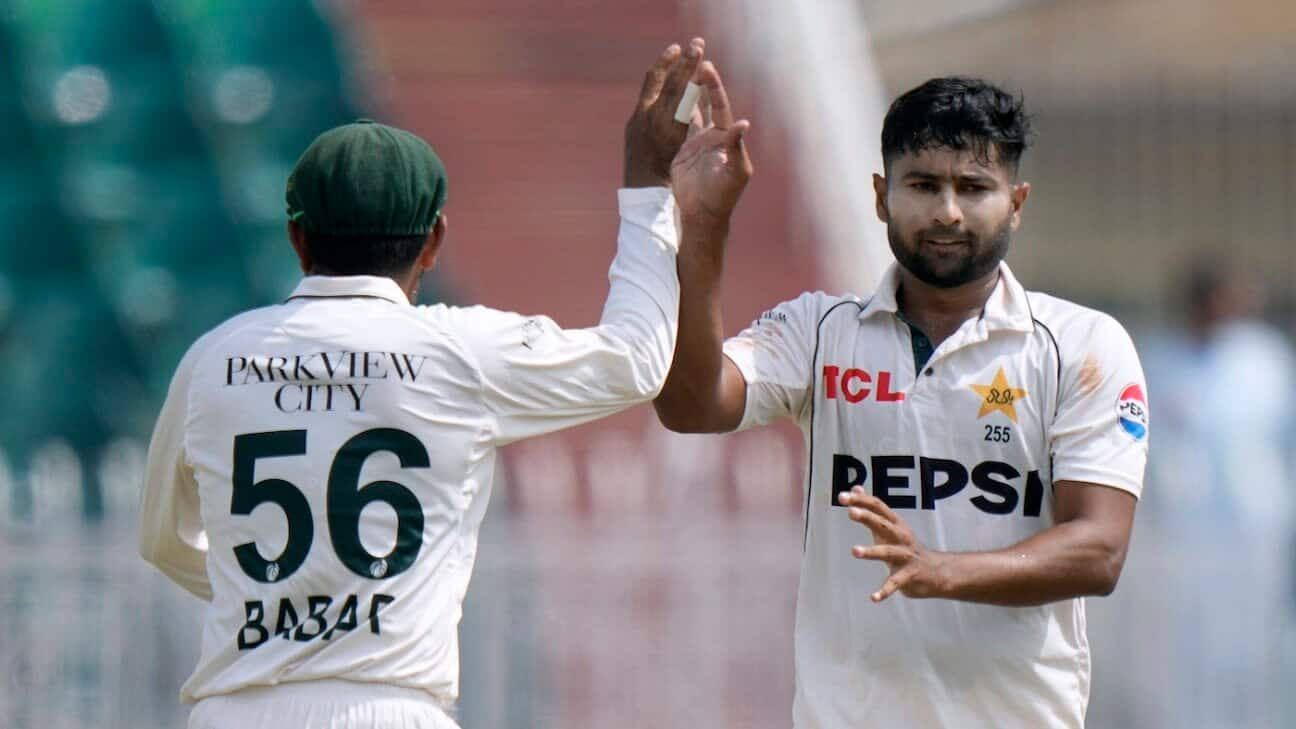
Pakistan's Khurram Shahzad likely to recover for England Test series
What's the story
Pakistan cricket team has received a significant fitness update, with fast bowler Khurram Shahzad expected to recover from his recent injury. The 24-year-old player was absent from the field during the final day of the latest Test series against Bangladesh due to discomfort and stiffness on his left side. Despite this setback, he played a crucial role in the series as Pakistan's second-highest wicket-taker. Here's more.
Performance review
Shahzad's performance and injury concerns
Shahzad demonstrated his skills by causing a first-innings collapse of the Bangladesh team, taking them down to 26 for six wickets. He achieved his career-best figures in this innings with six wickets for 90 runs. However, his performance was hampered in the second innings due to his injury, where he managed only one wicket for 40 runs in seven overs.
Injury update
Medical scans rule out fracture for Shahzad
Following the match, Shahzad underwent medical scans due to persistent pain and stiffness on his left side. ESPNcricinfo reported that these scans have ruled out a fracture. Doctors have recommended a short rest period for the player, suggesting that he should be fit for the upcoming Test series versus England next month. This news comes as a relief given Shahzad's recent injury history which included a stress fracture of the rib last December.
Recovery plan
Shahzad to miss Champions One-Day Cup
Due to his injury, Shahzad will not participate in the Champions One-Day Cup scheduled to begin next week. This decision is part of Pakistan's strategy to ensure his full recovery before the first Test against England on October 7 in Multan. His progress will be closely monitored with another MRI scan planned for next week.
Medical scrutiny
PCB's medical department under scrutiny
The Pakistan Cricket Board's (PCB) medical department has been under intense scrutiny following a series of long-term injuries to key players including Shaheen Afridi, Naseem Shah, Haris Rauf, Mohammad Hasnain, Hasan Ali and Ihsanullah. Earlier this year, an internal review that took place, criticized the management of Ihsanullah's injury and his treatment quality. This led to the resignation of the chief medical officer Dr Sohail Saleem on the same day.